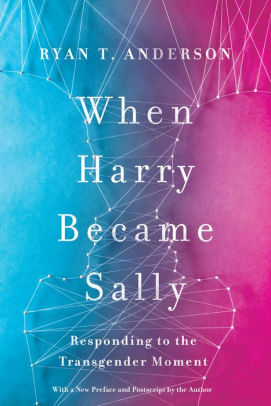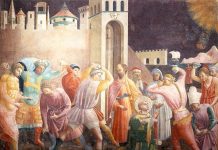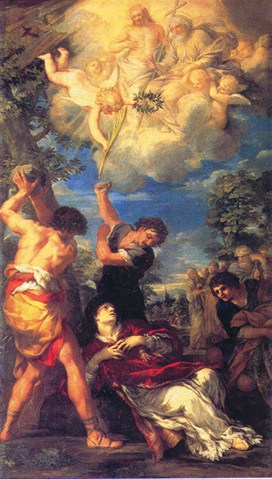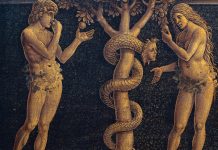Censorship on a scale even Orwell couldn’t imagine in 1984 is ramping up, only four decades or so off his predicted date, but here we are: Amazon has just erased Ryan Anderson’s factual, science-based book on transgenderism – vaporized from the shelves of the distribution giant. (And just wait until we see the constraining effects of Trudeau’s proposed ‘hate speech’ laws, and the recent egregious expansion of the ‘Equality Rights Act‘ south of the border).
Funny, since Amazon began as a book seller, buying up floundering second-hand bookshops, and consolidating the business. There were warnings years ago of the dangers of putting all one’s books in one Amazonian basket, but the ease of perusal and ordering, the quick delivery, and the cost reduction, were just too tempting. And like all temptations, there are bitter fruits for succumbing. Bookshops are now hard to find, and how does one market a book without Amazon? (To be fair, it’s still for sale on Barnes and Noble, as of this writing). Back in the old dystopias, they at least had to physically burn all the books – as, so many ideologues have done with their bonfires; now, they just disappear with the click of a mouse, and no one seems to be stirring, or doing much about it. Oh, well, what’s one more?
I used to enjoy browsing in bookstores in my days studying in Toronto – often old homes on side streets, transformed, with stacks and shelves of this and that, and treasures to be found. How many are left, I wonder, but the answer to that question might depress me. And now, if one giant store – insofar as one may call the behemoth that is Amazon a ‘store’ – effectively controls the entire stock and industry, just as Google now controls the flow of information, and FaceBook/Twitter human discourse – well, we reap what we have sown. Quis custodiet ipsos custodes?
Hence, a thought came to me in a review session with some students last evening, to set up a sort of virtual library and bookstore, at least to let each other know of treasures we have read, perhaps how to access them, even to offer to buy, sell or loan. Who knows? One book can transform the world.
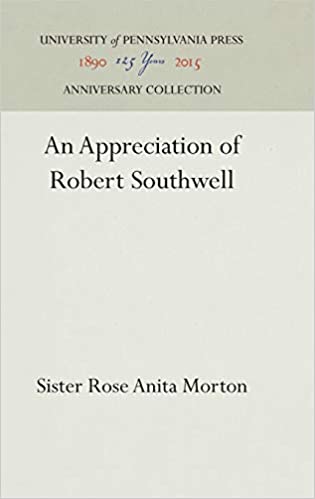
So I will begin with a small tome I am reading – a little-known work on Blessed Robert Southwell, the Jesuit priest, missionary, poet and martyr, whom we mentioned a few days ago, with his poem on conscience. Written in 1929 by Sister Rose Anita Morton, it is divided into two parts: The first a vivid biography of Southwell, and in the second, an insightful analysis of his prose and poetry, both well worth the read. I am always struck by the quality of writing of older books – was it paper and pen? More care and thought? A developed spirituality? Whatever it be, if you can find it for your home library, Sister’s Morton’s book would make a welcome addition. (Ironically enough, it’s for sale on Amazon, but for over a hundred dollars).
Robert Southwell lived in his own era of oppressive censorship (as I suppose all ages have been in some way). The good priest had his own printing press tucked away in a recusant house, as did many Catholics, with much work being passed around simply in manuscript form. Many of Southwell’s poems was composed while in the dank prison before his brutal execution – his hands mangled by inhuman torture on the rack and other devious instruments, in the very home of the infamous priest hunter Topcliffe himself, who had his own chamber set up, free from prying eyes. He once left Father Southwell hanging by his hands behind his back for seven hours, while he went to town – when he returned, and finally lowered the priest, Father Southwell vomited up blood. Yet, for all his suffering – Southwell later claimed he would have rather died ten thousand deaths for each of his tortures – they could not get one word out of him, as the priest prayed quietly. As he wrote in “I Die Alive”:
I live but such as ever dies,
I die, but such a death as never ends;
My death to end my dying life denies,
And life my loving death no whit amends.
Topcliffe had finally caught the Father Southwell by kidnaping and violating one of the daughters of a Catholic family the priest visited, all in the name of his ‘religion’, or his duty to his queen, or whatever moved his own seared and fractured conscience – he seems about as objectively bad a man as one might conjure up, even for a novel, whatever the ultimate state of his soul before God. Who knows, perhaps the prayers of the priest-poet saved him in the end?
In Elizabethan England, being found with any ‘Popish’ work – from a breviary or missal, to Jesuit poetry or prose – was a death sentence. So far, we’re not there yet, but one never knows, with each new day bringing its own particular evil. (I will soon write on Trudeau’s own censorship laws moving through the parliamentary pipe, as is much else untoward).
Yes, and each day also it’s own particular good – far greater good, in fact, far outweighing whatever’s bad. What we once took for granted – including a plethora of bookstores – now becomes more poignant and purified when we find them. As Aristotle wrote, the wise man is a man of few books – well and truly read.
So feel free to send in notes and comments on what you have read, are reading or plan to read, so that we all may be the wiser.

